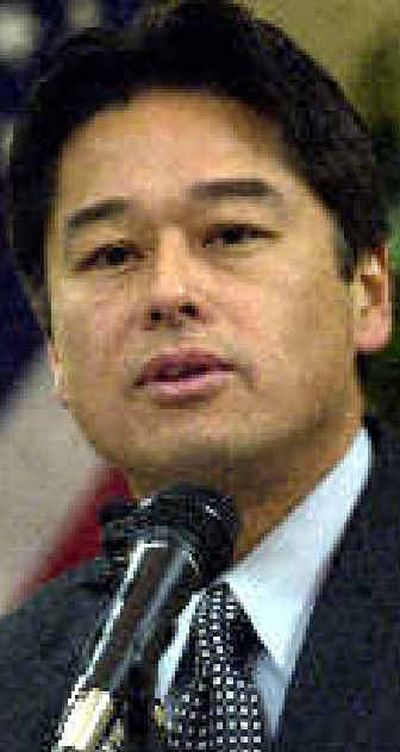Senate passes tougher vehicle-emissions rules

OLYMPIA – Despite Republican efforts to derail the bill, the state Senate on Wednesday voted to require new cars and trucks in Washington to meet California vehicle-emission standards.
Under the bill, ESHB 1397, new cars sold, leased or rented in Washington must meet the California regulations, starting with model year 2009 or 2010. Eight states, including California, have adopted the stricter rules.
Democrats, who agreed to several amendments from worried auto dealers, said the change will lead to cleaner air, fewer health problems and more miles per gallon.
“Clean cars drive great with less filling,” said Sen. Phil Rockefeller, D-Silverdale.
Senate Majority Leader Lisa Brown, D-Spokane, said the state and the nation should be in the forefront of the fight against pollution. Following California standards, she said, “is ultimately in the best interest of people many generations from now.”
Republicans countered that it’s wrong – and likely unconstitutional – for the state to base its laws on regulations written by “bureaucrats” in another state. Some rural lawmakers called it another example of the Puget Sound area inflicting its values on the rest of the state.
“This is an attempt to turn Washington into another California,” said Sen. Val Stevens, R-Arlington.
Standing on the Senate sidelines, Sen. Mark Schoesler shook his head.
“This bill summarizes what this session’s about: going to California for our car laws and Canada for our prescriptions,” said Schoesler, R-Ritzville, who voted no.
The proposal to adopt the stricter regulations, which the House of Representatives passed last month after hours of debate, has pitted environmental groups and their allies – including Avista Corp., the American Lung Association, the Spokane Conservation District and the 49 Degrees North ski area – against most automakers and auto dealers.
Last week, the Spokane County Air Pollution Control Authority took the unusual step of writing to lawmakers, telling them that bill backers were wrongly implying that SCAPCA supports the bill. And Spokane auto dealer Chris Marr broke ranks – and raised eyebrows – by publicly supporting the bill in a TV commercial.
“You look at what automakers are doing to stop people from buying clean cars in Washington, and it just doesn’t make any sense: the deceptive advertising, the bad math, the scare tactics,” Marr says in the ad, paid for by proponents. “Most people in Washington – seven out of 10 – want clean cars.”
“I will admit I’m in the minority (among car dealers) and it may be a minority of one,” Marr said in an interview Tuesday. “In the short term, I think there are probably people who view me as a bit of a traitor.”
In a nod to resistance from auto dealers, Democratic backers of the bill reluctantly agreed Wednesday to several changes. Among them: Washington will not follow California’s controversial requirement for “zero-emission vehicles.” Dealers said that was effectively a quota, requiring them to sell a certain percentage of electric vehicles or hybrids.
“The quota is the thing that really affects us,” said Chud Wendle, president of Wendle Motors in Spokane.
About 70 percent of the firm’s new sales are trucks and sport utility vehicles, he said. Only about 20 percent, he said, are cars favored by the California smog rules: compacts, subcompacts and hybrids. Under the original version of the bill, he said, 80 percent of the dealership’s inventory would have been small cars.
“The supply and demand for us just doesn’t pencil out,” he said.
Another important change was aimed at Vancouver-area dealers. The Senate version of the bill makes the new standards contingent upon Oregon also adopting them. Oregon has a task force weighing the issue now.
It’s unclear, however, what the Washington House will do with the Senate amendments. And even if those changes stick, the bill will add up to $3,000 to the price of a new car, hurting consumers and Spokane-area car dealers trying to sell cars to Idahoans and Montanans.
“We don’t see a lot of measurable improvement in air quality from the bill. We see a whole lot of added expense for people who want to buy particular makes of cars,” said Don Brunell, president of the Association of Washington Business.
Adding thousands of dollars to the cost of a new car is exactly the wrong thing to do, said Association of Washington Business lobbyist Grant Nelson. New cars are cleaner, more fuel efficient and safer, he said. Driving up the price with regulations, he said, will simply encourage people to keep their old cars longer.
Proponents, including Marr, say that the added cost is likely to be hundreds of dollars, not thousands.
“Detroit is polluting this debate with inflated cost estimates,” said Sen. Rockefeller.
Sen. Eric Poulsen, D-Seattle, said the California Air Resources Board estimates the extra cost at $1,000 a car. But based on current gas prices, he said, an average California emissions car would save $3,400 in gasoline over the life of the vehicle.
“They don’t like to be regulated,” said Lisa Andrews, a spokeswoman for Clean Cars for Washington. “Why did they fight seat belts so hard? Why did they fight airbags so hard?”
And automakers did fight this bill hard.
“Take a look at California’s air quality, by far the worst in the country, and you can see how it (the California system) has worked out,” said Eloi Garcia, state affairs director in California for the Alliance of Automobile Manufacturers. “Why you would want to follow California is beyond me.”
But for the bill’s proponents, Washington is part of a larger strategy; to make “California cars” such a large share of the market that automakers build all cars to those standards.
“We’re one state,” said Marr. “But we’re one state at the tipping point.”